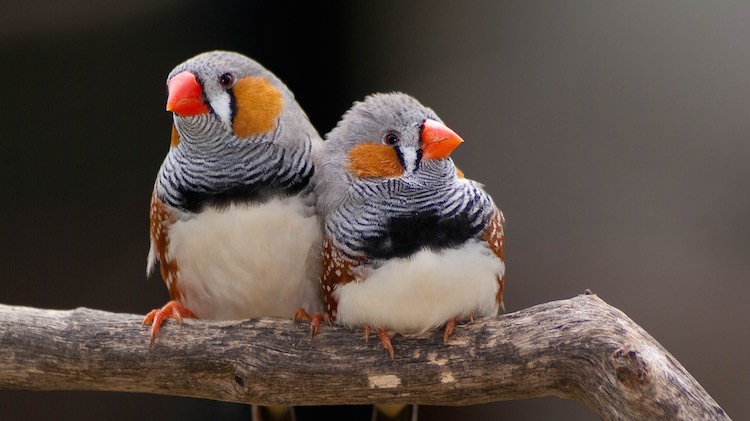Looks like they really did earn their nickname.
After spending 1,700 hours analyzing different pairs of birds, researchers found that the ones who got to live with their chosen mates—the “lovebirds,” if you will—were a lot happier than the ones that were forced into “incompatible” pairs.
Scientists at the Max Planck Institute for Ornithology in Munich, Germany set up a “speed dating” session for 20 male and 20 female zebra finches, allowing half of the naturally-selected pairs to live ‘happily ever after’ and breaking up the other half into “arranged marriages” with mates they hadn’t chosen.
Falcons Soar Off Endangered List With Irony, From Nests in City Skyscrapers
The ones who got to choose their mates had a 37% higher birth rate than the birds who didn’t get to choose, while the birds in arranged pairings laid three times as many unfertilized eggs. They also weren’t very good at parenting.
The scientists found males in both situations were equally willing to court their mates, but females in the forced pairings were far less receptive to their advances, refusing to simply “love the one you’re with.” The males in the non-choice pairings also strayed and had affairs with other birds — which only tended to upset their mates even more.
Writing in the journal PLOS Biology, Wolfgang Forstmeier, one of the study’s authors, concluded that the freedom to find a compatible mate is important “in order to motivate each other and to coordinate and share the various tasks.”
Cab Driver Gives Duck Family a Ride to Safety in His Back Seat
The researchers concluded that compatibility in a pair is critical for both healthy offspring and healthy behavior as a couple.
In other words, birds of a feather who flock together, stay together. Let’s not tear them apart.
(READ more at Discovery) — Photo by MichaelLawton, CC
Share This Story With Your Flock…




















